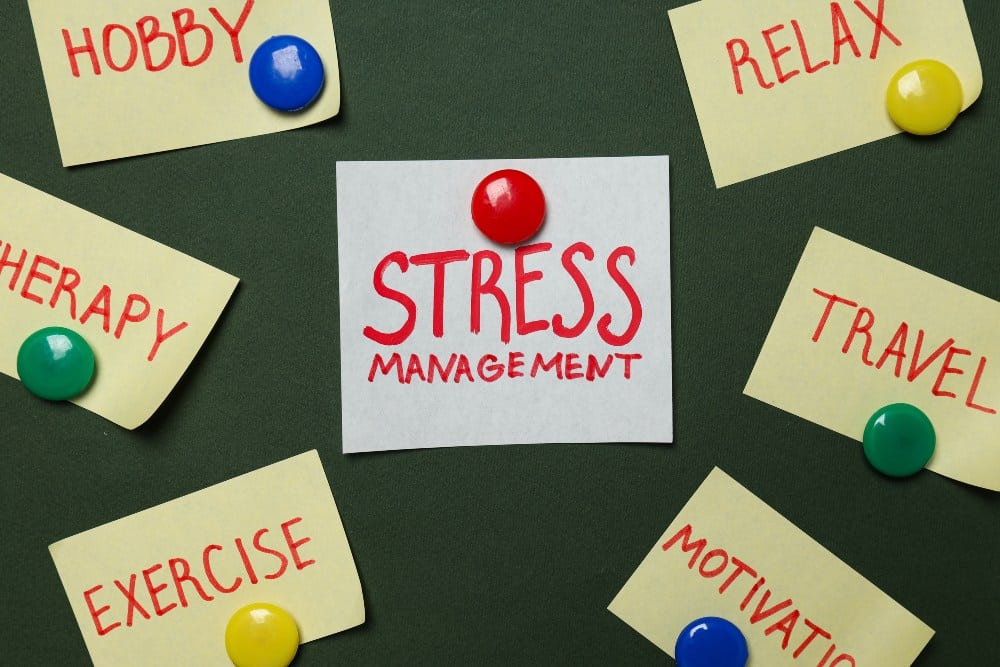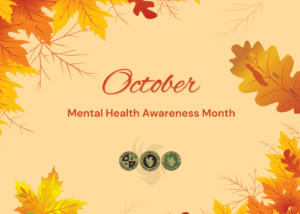As a first responder, you know that stress isn’t just part of the job—it’s woven into every shift, every call, and every moment you’re on duty. While you can’t eliminate the inherent stress of emergency response work, you can develop tactical tools to manage it effectively. These five evidence-based strategies are designed specifically for the unique demands of first responder life, helping you maintain peak performance while protecting your mental and physical well-being.
Why Tactical Stress Management Matters
First responders face a perfect storm of stressors: unpredictable schedules, life-or-death decisions, traumatic scenes, and the constant need to stay alert. Unlike other professions, you can’t simply “leave work at work.” Your body and mind need specialized tools to process stress in real-time and recover between calls.
Research shows that unmanaged stress doesn’t just affect job performance—it increases the risk of PTSI, depression, anxiety, and substance abuse. The good news? Small, tactical interventions can make a significant difference in your overall resilience and well-being.
1. Microbreaks with Purpose: Transform On-Call Recovery Moments
The Challenge: Even during “downtime” at the station, your nervous system often remains in a state of hypervigilance, ready for the next call.
The Tactical Tool: Use calm periods at the station—even just 3-5 minutes—for intentional breathing exercises, light stretching, or stepping outside for a quick mental reset.
How to Implement:
- Set a phone reminder every 2 hours to check in with your body
- Practice box breathing or deep breathing techniques: 4 counts in, hold for 4, out for 4, hold for 4
- Do simple neck and shoulder rolls to release physical tension
- Step outside and focus on three things you can see, hear, and feel
Why It Works: These microbreaks activate your parasympathetic nervous system, helping regulate stress hormones like cortisol and adrenaline. This preservation of energy ensures you’re ready for the next call without operating in chronic stress mode.
2. Stay Hydrated and Snack Smart: Master Shift-Ready Meal Planning
The Challenge: Irregular meal times, vending machine options, and the unpredictability of calls can lead to poor nutrition choices that crash your energy and mood.
The Tactical Tool: Bring or prepare easy-to-digest meals and snacks in advance, and set hydration reminders throughout your shift.
How to Implement:
- Prep night before: Pack nutrient-dense snacks like mixed nuts, protein bars, fresh fruit, or pre-made wraps
- Hydration strategy: Aim for 8-10 oz of water per hour on duty; set phone reminders if needed
- Quick energy foods: Keep options that provide sustained energy rather than sugar crashes (think whole grains, lean proteins, healthy fats)
- Emergency fuel: Have backup snacks in your gear bag for unexpectedly long calls
Why It Works: Proper nutrition and hydration maintain stable blood sugar levels, which directly impact mood, decision-making, and stress resilience. When your body is well-fueled, it’s better equipped to handle both physical and emotional demands.
3. Peer Check-Ins: Leverage Crew Debriefs and Healthy Humor
The Challenge: First responders often delay seeking help, leading to emotional isolation and stress buildup. This can contribute to compassion fatigue and burnout.
The Tactical Tool: Use downtime for informal, supportive conversations with crew members and conduct brief group debriefs after intense calls.
How to Implement:
- Informal check-ins: Ask crew members “How are you holding up?” and actually listen to the answer
- Post-call debriefs: Spend 5 minutes discussing what went well and any concerns after difficult calls
- Appropriate humor: Use healthy humor to decompress—laughter literally reduces stress hormones
- Normalize struggles: Share when you’re having a tough day; it gives others permission to do the same
Why It Works: Peer support is one of the most effective tools for preventing trauma from developing into long-term mental health issues. When stress is shared and normalized, it loses much of its power to cause harm. Learn more about how to navigate through survivor’s guilt and tips on how to ask for help.
4. Use Grounding Techniques: Master the Fast Mental Reset After Calls
The Challenge: Moving from high-adrenaline emergency situations back to baseline without processing the experience can lead to chronic stress accumulation.
The Tactical Tool: After high-stress calls, take 1-2 minutes to practice grounding techniques or breathing exercises before re-engaging.
How to Implement:
- 5-4-3-2-1 technique: Name 5 things you can see, 4 you can touch, 3 you can hear, 2 you can smell, 1 you can taste
- Box breathing: Use the same technique from microbreaks but focus specifically on transitioning from emergency mode
- Physical reset: Do 10 jumping jacks or push-ups to help your body process adrenaline
- Mindful moment: Take three deep breaths while mentally acknowledging “That call is complete, I’m safe now”
Why It Works: Grounding techniques help your nervous system recognize that the immediate threat is over, preventing your body from staying stuck in fight-or-flight mode. This conscious transition protects against long-term stress accumulation and burnout and trauma buildup. Understanding how the body remembers trauma can help you recognize why these techniques are so important.
5. Post-Shift Decompression Ritual: Transition Home Intentionally
The Challenge: Carrying the weight of your shift into your personal life can strain relationships and prevent proper recovery.
The Tactical Tool: Develop a consistent “shift-off” routine that creates a clear boundary between work and home life.
How to Implement:
- Physical transition: Change clothes immediately when you get home—this signals to your brain that you’re “off duty”
- Cleansing ritual: Take a shower to literally and symbolically wash away the shift
- Brief decompression: Take a 10-minute walk, listen to calming music, or sit quietly before engaging with family
- Mental download: Write down 2-3 things from your shift—this helps your brain process and file away experiences
Why It Works: Ritual creates psychological boundaries that help your mind transition from “work brain” to “home brain.” This separation is crucial for maintaining healthy relationships and allowing your nervous system to truly rest and recover.
When Tactical Tools Aren’t Enough
While these strategies are powerful tools for managing day-to-day stress, it’s important to recognize when additional support is needed. Understanding how to identify hidden stress and recognizing the signs of post-traumatic stress can help you determine when to seek help. If you’re experiencing:
- Persistent sleep problems
- Increased irritability or mood changes
- Thoughts of using alcohol or substances to cope
- Feeling disconnected from family and friends
- Intrusive thoughts about traumatic calls
These may be signs that professional support would be beneficial. At First Responder Wellness, we understand the unique challenges you face and provide specialized treatment designed specifically for first responders.
Your Next Steps
Start by implementing just one or two of these tools consistently for a week. Notice which ones feel most natural and effective for your specific role and shift patterns. Remember, building resilience is like physical fitness—it requires consistent practice, but the benefits compound over time.
Taking care of your mental health isn’t just about you—it’s about ensuring you can continue to serve your community effectively while maintaining your own well-being and relationships.
Ready to Take the Next Step?
If you’re a first responder struggling with stress, trauma, or substance use, you don’t have to face it alone. First Responder Wellness offers confidential, specialized treatment programs designed specifically for the unique challenges of emergency response work.
Call us today at 888-443-4898 to learn more about our programs and how we can help you build lasting resilience and wellness.
At First Responder Wellness, we understand that seeking help takes courage. Our culturally competent treatment team is here to support you every step of the way toward a healthier, more balanced life.
Clinically Reviewed & Written By:

Dr. Rose Maynard, PsyD
Rose Maynard, a Licensed Marriage and Family Therapist, holds a Doctorate and Master's degrees from Alliant International University and a BA in Psychology from Vanguard University. She is trained in trauma-specific modalities, including EMDR, ART, and TF-CBT.




